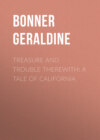Loe raamatut: «Miss Maitland, Private Secretary»
CHAPTER I – THE PARTING OF THE WAYS
Chapman Price was leaving Grasslands. Events had been rapidly advancing to that point for the last three months, slowly advancing for the last three years. Everybody who knew the Prices and the Janneys said it was inevitable, and people who didn't know them but read about them in the "society papers" could give quite glibly the reasons why Mrs. Chapman Price was going to separate from her husband.
His friends said it was her fault; Suzanne Price was enough to drive any man away from her – selfish, exacting, bad tempered, a spoiled child of wealth. Chappie had been a first-rate fellow when he married her and she'd nagged and tormented him past bearing. Her friends had a different story; Chapman Price was no good, had neglected her, was an idler and a spendthrift. Hadn't the Janneys set him up in business over and over and found it hopeless? What he had wanted was her money, and people had told her so; her mother had begged her to give him up, but she would have him and learned her lesson, poor girl! Those in the Janney circle said there would have been a divorce long before if it hadn't been for the child. She had held them together, kept them in a sort of hostile, embattled partnership for years. And then, finally, that link broke and Chapman Price had to go.
There had been a last conclave in the library that morning, Mrs. Janney presiding. Then they separated, silent and gloomy – a household of eight years, even an uncongenial one, isn't broken up without the sense of finality weighing on its members. Chapman had gone to his rooms and flung orders at his valet to pack up, and Suzanne had gone to hers, thrown herself on the sofa, and sniffed salts with her eyes shut. Mr. and Mrs. Janney repaired to the wide shaded balcony and there talked it over in low tones. They were immensely relieved that it was at last settled, though of course there would be the unpleasantness of a divorce and the attending gossip. Mr. Janney hated gossip, but his wife, who had risen from a Pittsburg suburb to her present proud eminence, was too battle-scarred a veteran to mind a little thing like that.
As they talked, their eyes wandered over a delightful prospect. First a strip of velvet lawn, then a terrace and balustraded walk, and beyond that the enameled brilliance of long gardens where flowers grew in masses, thick borders, and delicate spatterings, bright against the green. Back of the gardens were more lawns, shaven close and dappled with tree shadows, then woods – Mrs. Janney's far acres – on this fine morning all shimmering and astir with a light, salt-tinged breeze. Grasslands was on the northern side of Long Island, only half a mile from the Sound through the seclusion of its own woods.
It was quite a show place, the house a great, rambling, brown building with slanting, shingled roofs and a flanking rim of balconies. Behind it the sun struck fire from the glass of long greenhouses, and the tops of garages, stables and out-buildings rose above concealing shrubberies and trellises draped with the pink mantle of the rambler. Mrs. Janney had bought it after her position was assured, paying a price that made all Long Island real estate men glad at heart.
Sitting in a wicker chair, a bag of knitting hanging from its arm, she looked the proper head for such an establishment. She was fifty-four, large – increasing stoutness was one of her minor trials – and was still a handsome woman who "took care of herself." Her morning dress of white embroidered muslin had been made by an artist. Her gray hair, creased by a "permanent wave," was artfully disposed to show the fine shape of her head and conceal the necessary switch. She was too naturally endowed with good taste to indicate her wealth by vulgar display, and her hands showed few rings; the modest brooch of amethysts fastening the neck of her bodice was her sole ornament. And this was all the more commendable, as Mrs. Janney had wonderful jewels of which she was very proud.
Five years before, she had married Samuel Van Zile Janney, who now sat opposite her clothed in white flannels and looking distressed. He was a small, thin, elderly man, with a pointed gray beard and a general air of cool, dry finish. No one had ever thought old Sam Janney would marry again. He had lost his wife ages ago and had been a sort of historic landmark for the last twenty years, living desolately at his club and knowing everybody who was worth while. Of course he had family, endless family, and thought a lot of it and all that sort of thing. So his marriage to the Pittsburg widow came as a shock, and then his world said: "Oh, well, the old chap wants a home and he's going to get it – a choice of homes – the house on upper Fifth Avenue, the place at Palm Beach and Grasslands."
It had been a very happy marriage, for Sam Janney with his traditions and his conventions was a person of infinite tact, and he loved and admired his wife. The one matter upon which they ever disagreed was Suzanne. She had been foolishly indulged, her caprices and extravagances were maddening, her manners on occasions extremely bad. Mr. Janney, who had beautiful manners of his own, deplored it, also the amount of money her mother allowed her; for the fortune was all Mrs. Janney's, Suzanne having been left dependent on her bounty.
His wife, who had managed everything else so well, resented these criticisms on what should have been the completest example of her competence. She also resented them because she knew they were true. With all her cleverness and all her capability she had not succeeded with her daughter. The girl had got beyond her; the unfortunate marriage with Chapman Price had been the climax of a youth of willfulness and insubordination. Suzanne's affairs, Suzanne's future, Suzanne herself were subjects that husband and wife avoided, except, as in the present instance, when they were the only subjects in both their minds.
Presently their low-toned murmurings were interrupted by the appearance of Dixon, the butler, announcing lunch.
"Mrs. Price," he said, "will not be down – she has a headache."
Mrs. Janney rose, looking at the man. He had been in her service for years, was one of the first outward and visible signs of her growth in affluence. She was sure that he knew what had happened, but her face was unrevealing as a mask, as she said:
"See that she gets something. Will Mr. Price take his lunch upstairs?"
"No, Madam," returned the man quietly, "Mr. Price is coming down."
It was a ghastly meal – three of them eating sumptuous food, waited on by two men hardly less silent than they were. It wouldn't have been so unbearable if Bébita, Suzanne's daughter, had been there to lift the curse off it with her artless chatter, or Esther Maitland, the social secretary, who had acquired a habit of talking with Mr. Janney when the rest of the family were held in the dumbness of wrath. But Bébita was spending the morning with a little chum and Miss Maitland was lunching with a friend in the village.
Chapman Price, as if anxious to show how little he cared, ate everything that was passed, and prolonged the misery by second helpings. Mrs. Janney could have beaten him, she was so angry. Once she glanced at him and met his eyes, insolently defiant, and as full of hostility as her own. They were vital eyes, dark and bold, and were set in a handsome face. At the time of his marriage he had been known as "Beauty Price" and it was his good looks which had caught the capricious fancy of Suzanne. In the eight years since then they had suffered, the firmly modeled contours had grown thin and hard, the mouth had set in an ugly line, the brows had creased by a frown of sulky resentment. But he was still a noticeable figure, six feet, lean and agile, with a skin as brown as a nut and a crown of black hair brushed to a glossy smoothness. Many women continued to describe Chapman Price as "a perfect Adonis."
When they rose from the table he stood aside to let his parents-in-law pass out before him. They brushed by, feeling exceedingly uncomfortable and wanting to get away as quickly as their dignity would permit. They dreaded a last flare-up of his temper, notoriously violent and uncontrolled, one of the attributes that had made him so unacceptable. In the hall at the stair foot they half turned to him, swept him with cold looks and were mumbling vague sounds that might have been dismissal or farewell, when he suddenly raised his voice in a loud, combative note:
"Oh, don't bother to be polite. There's no love between us and there needn't be any hypocrisies. You want to get rid of me and I want to go. But before I do, I'd like to say something." He drew a step nearer, his face suddenly suffused with a dark flush, his eyes set and narrowed. "You've done one thing to me that you're going to regret – stolen my child. Yes," in answer to a protesting sound from Mr. Janney, "stolenher – that's what I said. You think you can hide behind your money bags and do what you like. Maybe you can nine times, but there's a tenth when things don't work the way you've expected. Watch out for it – it's due now."
His voice was raised, loud, furious, threatening. The dining room door flew open and Dixon appeared on the threshold in alarmed consternation. Mr. Janney stepped forward belligerently:
"Chapman, now look here – "
Mrs. Janney laid a hand on her husband's arm:
"Don't answer him, Sam," then to Chapman, her face stony in its controlled passion, "I want no more words with you. Our affairs are finished. Kindly leave the house as soon as possible." She turned to the butler who was staring at them with dropped jaw: "Shut that door, Dixon, and stay where you belong." The sound of footsteps at the stair-head caught her ear. "The other servants are coming: we'll have an audience for this pleasant scene. We'd better go, Sam, as Chapman doesn't seem to have heard my request for him to leave, the only thing for us is to leave ourselves."
She swept her husband off across the hall toward the balcony. Behind them the young man's voice rose:
"Oh don't have any fears. I'm going. But I may come back – that's what you want to remember – I may come back to settle the score."
Then they heard his footsteps mounting the stairs in a long, leaping run.
In his own room he found his valet, Willitts, a small, fair-haired young Englishman, closing the trunks. The door was open and he had a suspicion that the footsteps Mrs. Janney had heard were probably Willitts'. He didn't care, he didn't care what Willitts had heard. The man knew anyhow; they all knew. There wasn't a servant in the house or a soul in the village who wouldn't by to-morrow be telling how the Janneys had thrown him out and were planning to get possession of his child.
He strode about the room, tumbled the neat piles of cravats and handkerchiefs on the bureau, yanked up the blinds. In his still seething passion he muttered curses at everything, the clothes that lay across chair backs, the boots that he kicked as he walked, finally the valet who once got in his way. The man made no answer, did not appear to notice it, but went on with his work, silent, unobtrusive, competent. Presently Chapman became quieter; the storm was receding. He fell into a chair, sat sunk in moody reflection, and, after studying the shining toes of his shoes for some minutes, looked at the man and said, "Forget it, Willitts. I was mad straight through."
It may have been a capacity to make such amends that caused all servants to like Chapman Price. Willitts, who had been in his service for nearly a year, was known to be devoted to him.
An hour later, when they left, the house had an air of desertion. The large lower hall, with vistas of stately rooms through arched doorways, was as silent as the Sleeping Beauty's palace. Chapman's glance swept it all – rich and still, gleams of parquette showing beyond the Persian rugs, curtains too heavily splendid for the breeze to stir, flowers in glowing masses, the big motor, visible through the wide-flung hall door, a finishing touch in the picture. It was the perfect expression of a carefully devised luxury, a luxury which for the last eight years had lapped him in slothful ease.
As he came out on the verandah steps a voice hailed him and he stopped, the sullen ill humor of his face breaking into a smile. Across the lawn, running with fleet steps, came his daughter Bébita. Laughing and gay with welcome, she was as fresh as a morning rose. Her hat, slipped to her neck, showed the glistening gold of her hair back-blown in ruffled curls; her rapid passage threw her dress up over her bare, sunburned knees, and her little feet in black-strapped slippers sped over the grass. Healthy, happy, surrounded by love which she returned with a child's sweet democracy, she was enchanting and Chapman adored her.
"Where are you going, Popsy?" she cried and, dodging round the back of the motor, came panting up the steps. Chapman sat down on the top, and drew her between his knees. Otto, the chauffeur, and Willitts with the bags, watched them with covert interest, ready to avert their eyes if Chapman should look their way. The nurse, an elderly woman, came slowly across the grass, also watching.
"To town," said the young man, scrutinizing the lovely, rosy face, with its deep blue eyes raised to his.
"For how long?" She was used to her father going to town and not reappearing for several days.
"Oh, I don't know; longer than usual, though, I guess. Going to miss me?"
"Um, I always miss you, Popsy. Will you bring me something when you come back?"
"Yes, or maybe I'll send it. What do you want?"
"A 'lectric torch – one that shines. Polly's got one" – Polly was the little friend she had been visiting – "I want one like Polly's."
"All right. A 'lectric torch."
"I'm going to get one, Annie," she cried triumphantly to the nurse; "Popsy's going to send me one." Then turning back to her father, "Take me to the station with you?"
Willitts and the chauffeur exchanged a glance. The nurse made a quick forward movement, suddenly gently authoritative:
"No, no, darling. You can't drive now. It's time to go in and take jour rest."
Bébita looked mutinous, but her father, drawing her to him and kissing her, rose:
"I can't honey-bun. I'm in a hurry and there wouldn't be any fun just driving down to the village and back. You run along with Annie now and as soon as I get to town I'll buy you the torch and send it."
The nurse mounted the steps, took the child's hand, and together they stood watching Chapman as he got in. Willitts took the seat beside the chauffeur, adroitly disposing his legs among a pile of suitcases, golf bags, umbrellas and walking sticks. As the car started Chapman looked back at his daughter. She was regarding him with the intent, grave interest, a little wistful, with which children watch a departure. At the sight of his face, she smiled, pranced a little, and called:
"Good-by, Popsy dear. Don't forget the torch. Come back soon," and waved her free hand.
Chapman gave an answering wave and the big car rolled off with a cool crackle of gravel.
The village – the spotless, prosperous village of Berkeley enriched by the great estates about it – was a half mile from Grasslands' wrought-iron gates. The road passed through woods, opening here and there to afford glimpses of emerald lawns backed by large houses, with the slope of awnings above their balconies. On either side of this highway ran a shady path, worn hard by the feet of pedestrians and the wheels of bicycles.
As the Janney motor turned out into the road a young woman was walking along one of these paths, returning to Grasslands. She appeared to be engrossed in thought, her step loitering, her eyes down-cast, a slight line showing between her brows. Out of range of the sun she had let her parasol droop over her shoulder and its green disk made a charming background for her head. She wore no hat and against the taut silk her hair showed a glossy, burnished brown. It was beautiful hair, growing low on her forehead and waving backward in loose undulations to the thick knot at the nape of her neck. Her skin was pale, her eyes, under long brows that lifted slightly at the outer ends, deep-set, narrow and dark. She was hardly handsome, but people noticed her, wondered why they did, and then said she was "artistic-looking," or maybe it was just personality; anyway, say what you like, there was something about her that caught your eye. Dressed entirely in white, a slim, sunburned hand coiled round the parasol handle, her throat left bare by a sailor collar, she was as trim, as flecklessly dainty, graceful and comely as a picture-girl painted on the green canvas of the trees.
At the sight of her Chapman, who had been lounging in the tonneau, started and his morose eye brightened. As the motor ran toward her, she looked up, saw who it was, and in the moment of passing, inclined her head in a grave salutation. Chapman leaned forward and touched the chauffeur on the shoulder.
"Just stop for a minute, Otto, I want to speak to Miss Maitland."
She did not see that the car had stopped or hear the footstep on the grass behind her. Chapman's voice was low:
"Hullo, Esther. Don't be in such a hurry. I'm going."
She wheeled, evidently startled, her face disturbed and unsmiling.
"Oh! Do you mean really going?"
"Yes. Parting of the ways – all that sort of thing."
He eyed her with a curious, watching interest and she returned the look, her own uneasily intent.
"Why do you stop to tell me that," was what she said. "Everybody knew it was coming."
He shrugged and then smiled, a smile full of meaning:
"I thought you'd like to hear it – from me, first hand. I'll be a free man in a year."
She stood for a moment looking at the ground, then lifting the parasol over her head, said:
"If you're going to catch the three forty-five you'd better hurry."
His smile deepened, showed a roguish malice, and as he turned from her, raising his hat, he murmured just loud enough for her to hear:
"Thanks for reminding me. I wouldn't miss that train for a farm – I'm devilish keen to get to the city."
He ran back to the waiting motor and the girl resumed her walk, her step even slower than before, her face down-drooped in frowning reverie.
There was no chair car on the three forty-five and Chapman had to travel in the common coach, Willitts and the luggage crowded into the seat behind him. It was an hour and a half run to the Pennsylvania Station and he spent the time thinking over the situation and arranging his future. His business – Long Island real estate – had been allowed to go to the dogs. He would have to get busy in earnest, and, with his friends and large acquaintance to throw things in his way, he could put it on a paying basis. His expenses would have to be cut down to the bone. He'd give up his chambers, a suite in a bachelor apartment – Willitts could find him a cheap room somewhere – and of course he'd give up Willitts. That had been already arranged and the faithful soul had asked leave to help him in the move and stay with him till a new job was found. He would keep his car – it would be necessary in his business – and could be stored in the garage at Cedar Brook where he'd spend his week-ends with the Hartleys. Joe Hartley was one of his best friends, knew all about his marriage and had counseled a separation more than a year ago. He'd probably spend a good deal of his time at Cedar Brook, it was a growing place; unfortunate that it should be the next station after Berkeley, but it could not be helped. He was bound to run into the Janney outfit and he'd have to get used to it.
The train was entering the tunnel when he gave Willitts his instructions – go to the apartment and pack up, then see about a room. He himself would look up some places he knew of, and if he found anything suitable he'd come back to the apartment and the things could be moved to-morrow. They separated in the depot, Willitts and the luggage in a taxi, Chapman on foot. But that part of the city to which he took his way, dingy, unkempt, remote from the section where his kind dwelt, was not a place where Chapman Price, fallen from his high estate as he was, would have chosen to house himself.



















